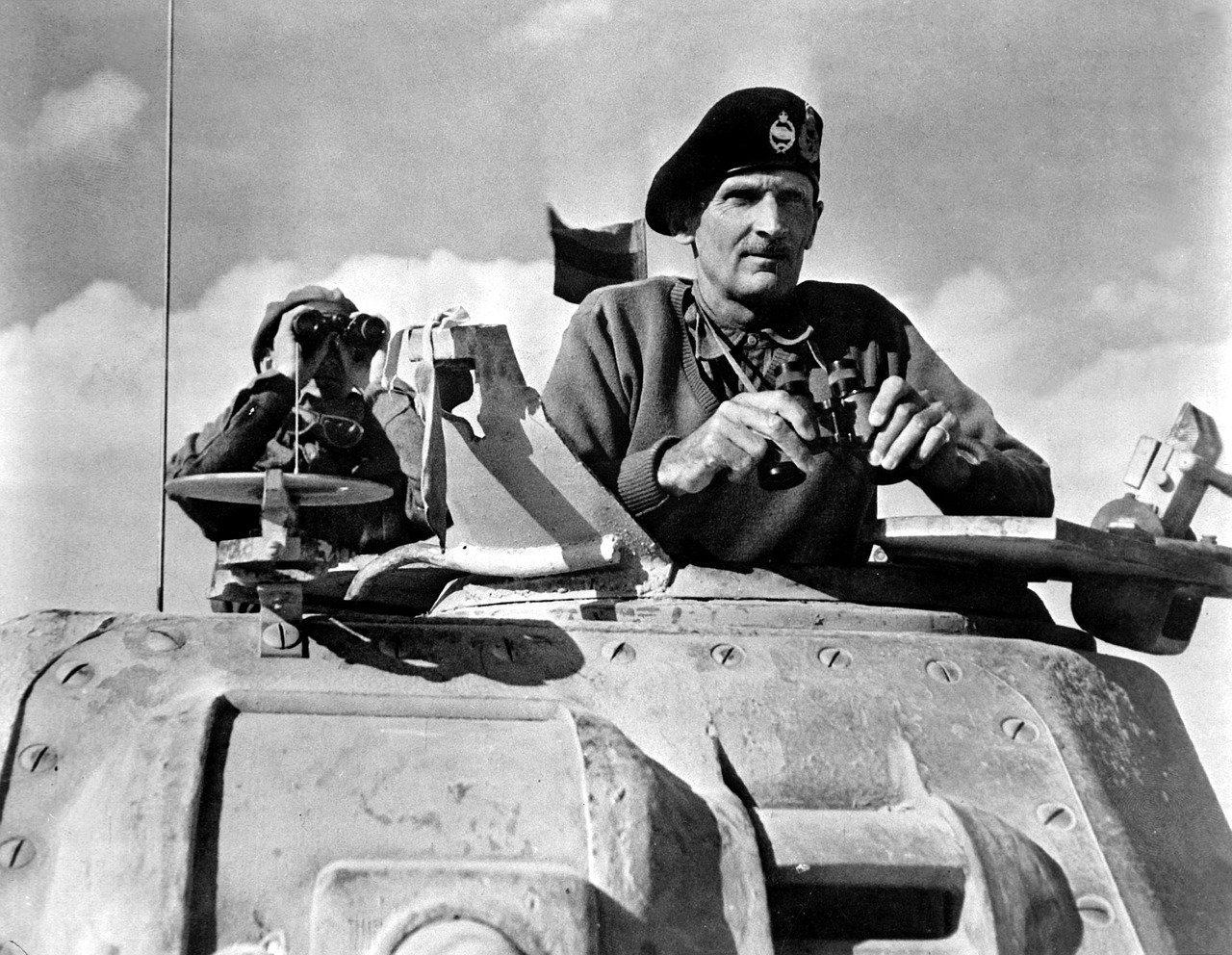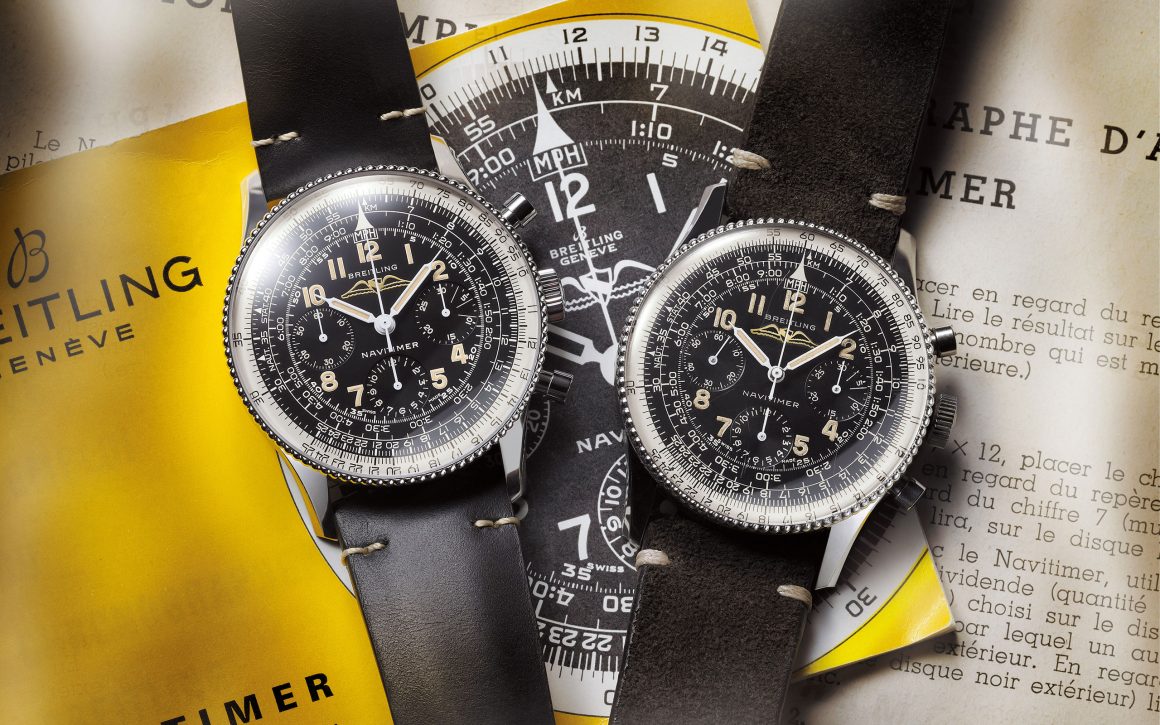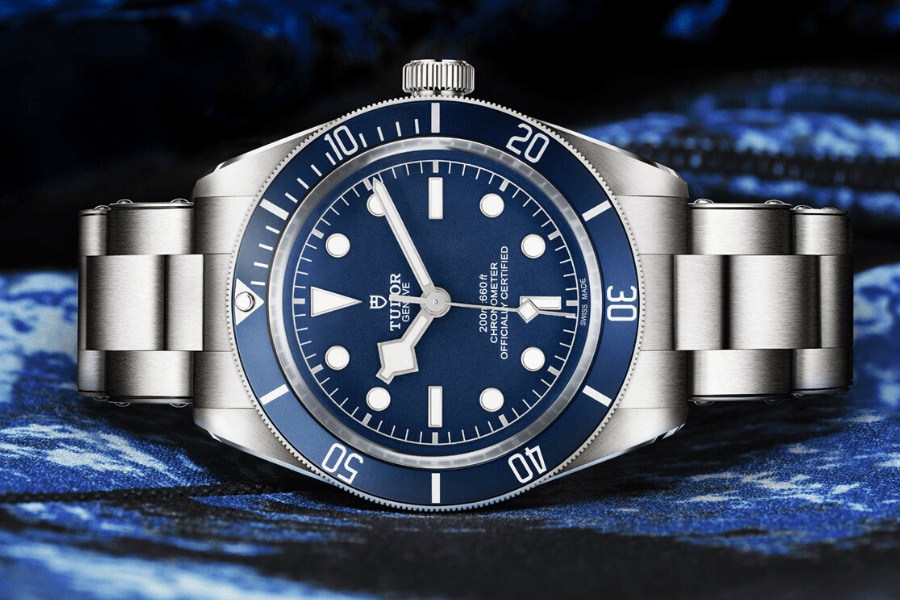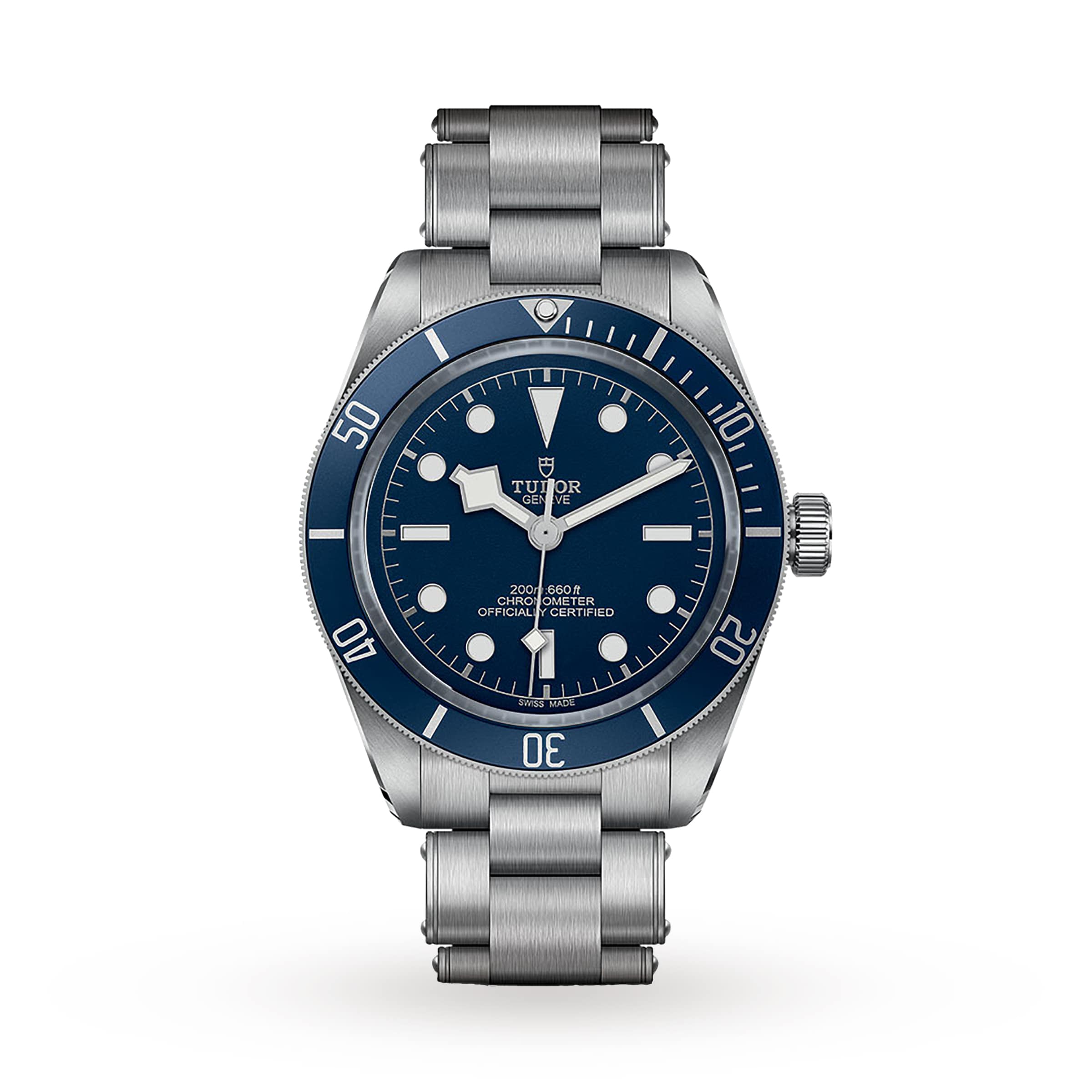The Complete Calibre Guide To Military Watches
The Watches of Switzerland Group | 7 minute read

No one knows the importance of timekeeping better than military personnel. From combat planning and strategising, to figuring out your location and plotting routes, keeping a sharp eye on the time is essential.
Since the start of World War I a reliable military watch has been the constant companion of those out in the field. And although technologies and designs have evolved over the years, these timepieces still hold much of the rugged charm that helped make them as popular with civilians as they were with soldiers.
What Is A Military Watch?
The best military watches are more than just a practical fashion accessory with a storied history. They are tools for survival, and the pinnacle of utility and resilience. Military watches favour functionality over form in every aspect, but that doesn’t mean there isn’t a beauty to their design.
Military watches are known for their dark colourways, punctuated with white numbers and utilitarian design features. These subdued colours create a bold and striking look, but this appearance is rooted in practicality. Dark colours help these watches blend in with the background when worn, so there’s less chance of a shiny timepiece giving your position away to the enemy. And the prominent white numbers make it simple to tell the time at a quick glance, a priceless feature when every second counts.
At its core, a military watch should be highly durable and always reliable, a timepiece that’s able to cope with almost anything life may throw at it. This is achieved through extra tough casings and materials, improved shock resistance, and waterproofing. These timepieces are also equipped with a variety of tactical complications, to help you navigate any situation you may find yourself in.
Over the last century, military watches have increased in popularity and are no longer reserved solely for service men and women. With a range of practical features, they’re a handy and reliable companion piece of equipment for all types of outdoor pursuits and adventures, such as hiking, mountaineering, or rafting.
The best military watches are more than just a practical fashion accessory with a storied history. They are tools for survival, and the pinnacle of utility and resilience. Military watches favour functionality over form in every aspect, but that doesn’t mean there isn’t a beauty to their design.
Military watches are known for their dark colourways, punctuated with white numbers and utilitarian design features. These subdued colours create a bold and striking look, but this appearance is rooted in practicality. Dark colours help these watches blend in with the background when worn, so there’s less chance of a shiny timepiece giving your position away to the enemy. And the prominent white numbers make it simple to tell the time at a quick glance, a priceless feature when every second counts.
At its core, a military watch should be highly durable and always reliable, a timepiece that’s able to cope with almost anything life may throw at it. This is achieved through extra tough casings and materials, improved shock resistance, and waterproofing. These timepieces are also equipped with a variety of tactical complications, to help you navigate any situation you may find yourself in.
Over the last century, military watches have increased in popularity and are no longer reserved solely for service men and women. With a range of practical features, they’re a handy and reliable companion piece of equipment for all types of outdoor pursuits and adventures, such as hiking, mountaineering, or rafting.

Breitling Navitimer
The History Behind The Military Watch
The world of horology owes a lot of its history to the tenacity of the armed forces. The first examples of modern mechanical wristwatches were also the first military watches, or field watches, and both came about thanks to the creative problem solving of soldiers on the front lines.
For the officers and soldiers in the trenches of World War I, the ability to synchronise their attacks across dozens of miles could mean the difference between victory and defeat. But with the chaos of war all around them, the pocket watches of the era were an impractical and inconvenient way to keep track of the time during these crucial moments. Resourceful soldiers began strapping their pocket watches to their wrists to provide a quick, hands-free way to check the time.
As the war continued, the demand for wristwatches exploded. By 1918, wristwatches were worn by all ranks, from wealthy officers to privates and generals alike. Then, as the soldiers returned home, their new accessories rapidly gained attention and popularity amongst civilians.
By the dawn of World War II, the standard military watch had undergone a number of changes and improvements, giving us the distinctive style we recognise today. Luminous paint had been added to the dials and hands, water- and dust-resistant cases were introduced, and the black-on-white background of the dial had been swapped for the more legible white-on-black colourway. New complications were also added, giving soldiers quick access to tools such as a compass, barometer, chronograph, and alarms.
Some of the most famous examples of military-specification watches are the classic A Type watches of World War II, and in particular the A-11, that were produced for the US military. Its distinct, high-visibility design with white hands and numbers, black dial, and crisp 60-second gradations became the blueprint for military-specification watches the world over, and has continued to influence consumer designs ever since. From the beginning of World War II, military watches began to be produced by a number of renowned watch manufacturers including Rolex, Jaeger-LeCoultre and IWC Schaffhausen.
The Vietnam War changed both the military and public perception of wristwatches, which became much more affordable after the war. Up to this point, a watch was considered to be a highly valuable item. But with cost-cutting and efficiency at the forefront of the US government’s mind, new cheaper and disposable options were created. Precious metal cases were replaced with stainless steel, and the crystal swapped for reinforced plastic. These new manufacturing techniques would soon filter down to the consumer, making watches more accessible and affordable for the everyday man.
Since then, military watches have evolved to include features such as battery-powered quartz movements, digital displays, improved accuracy, and even more advanced complications. However, for all of the advancements over the years, that same utilitarian design remains, and no soldier’s kit would be complete without one.
The world of horology owes a lot of its history to the tenacity of the armed forces. The first examples of modern mechanical wristwatches were also the first military watches, or field watches, and both came about thanks to the creative problem solving of soldiers on the front lines.
For the officers and soldiers in the trenches of World War I, the ability to synchronise their attacks across dozens of miles could mean the difference between victory and defeat. But with the chaos of war all around them, the pocket watches of the era were an impractical and inconvenient way to keep track of the time during these crucial moments. Resourceful soldiers began strapping their pocket watches to their wrists to provide a quick, hands-free way to check the time.
As the war continued, the demand for wristwatches exploded. By 1918, wristwatches were worn by all ranks, from wealthy officers to privates and generals alike. Then, as the soldiers returned home, their new accessories rapidly gained attention and popularity amongst civilians.
By the dawn of World War II, the standard military watch had undergone a number of changes and improvements, giving us the distinctive style we recognise today. Luminous paint had been added to the dials and hands, water- and dust-resistant cases were introduced, and the black-on-white background of the dial had been swapped for the more legible white-on-black colourway. New complications were also added, giving soldiers quick access to tools such as a compass, barometer, chronograph, and alarms.
Some of the most famous examples of military-specification watches are the classic A Type watches of World War II, and in particular the A-11, that were produced for the US military. Its distinct, high-visibility design with white hands and numbers, black dial, and crisp 60-second gradations became the blueprint for military-specification watches the world over, and has continued to influence consumer designs ever since. From the beginning of World War II, military watches began to be produced by a number of renowned watch manufacturers including Rolex, Jaeger-LeCoultre and IWC Schaffhausen.
The Vietnam War changed both the military and public perception of wristwatches, which became much more affordable after the war. Up to this point, a watch was considered to be a highly valuable item. But with cost-cutting and efficiency at the forefront of the US government’s mind, new cheaper and disposable options were created. Precious metal cases were replaced with stainless steel, and the crystal swapped for reinforced plastic. These new manufacturing techniques would soon filter down to the consumer, making watches more accessible and affordable for the everyday man.
Since then, military watches have evolved to include features such as battery-powered quartz movements, digital displays, improved accuracy, and even more advanced complications. However, for all of the advancements over the years, that same utilitarian design remains, and no soldier’s kit would be complete without one.

Tudor Black Bay Navy Blue
Durability
Military-issue watches had to be tough enough to withstand the harsh environments and constant dangers that faced soldiers in the field. And the civillian-focused versions are no different. These timepieces feature a robust case, highly durable materials, and shock-, impact- and abrasion- resistance.
Reliability
It’s vital that any military equipment is reliable. The watches movements need to be able to function well under all extremes, from bitter cold to scorching heat, and high altitudes.
Accuracy
Timepieces that provide to-the-second accuracy are vital when it comes to military planning or coordination.
A Discreet Design
A common characteristic of watches used by the military and other outdoorsmen is a dark, discreet design. Dark colours such as black, grey, navy, and green blend in with both uniforms and the environment, so the timepiece doesn’t draw unwanted attention to its wearer.
Tactical Complications
Alongside the standard features, such as date and time, a military watch should also include a number of more advanced, tactical functions. Common complications for military watches include a compass, alarms, chronograph, barometer, and altimeter.
Water Resistance
A soldier needs a watch that can stand up to everything from heavy downpours to flooded trenches. A good military watch should be water resistant to at least 100m.
Luminosity
In the field, soldiers need to be able to read their watches under all weather and lighting conditions. So a timepiece with a luminous dial or hands, or a backlight, is an essential feature.
Legibility
A military watch should be easy to read at a glance. The dial should be highly legible, and free from unnecessary clutter that could impact its readability. This usually translates into bold white numbers on a black background, clearly marked seconds, and thick hands. Military watches also often feature a set of smaller numbers around the dial denoting the 24 hour clock.
Choosing The Right Military Watch
Although all military watches have a robust durability and a number of advanced complications, understanding what you intend to use this watch for should be the first step to choosing your luxury timepiece. Are you planning to wear it for fashion only, or do you want a timepiece you can take along for the ride when it comes to extreme, physical activities?
If you’re looking for a reliable watch that can accompany you on your adventures, there are a variety of styles that are specialised for certain activities, so you’re sure to find a style tailored to your favourite pursuit. Or, if you like to get involved in a number of different activities you could instead opt for a solid all-rounder, that includes many of the typical military watch complications.
Although all military watches have a robust durability and a number of advanced complications, understanding what you intend to use this watch for should be the first step to choosing your luxury timepiece. Are you planning to wear it for fashion only, or do you want a timepiece you can take along for the ride when it comes to extreme, physical activities?
If you’re looking for a reliable watch that can accompany you on your adventures, there are a variety of styles that are specialised for certain activities, so you’re sure to find a style tailored to your favourite pursuit. Or, if you like to get involved in a number of different activities you could instead opt for a solid all-rounder, that includes many of the typical military watch complications.
Calibre Online selects
Our buyers have selected three timepieces, iconic in both heritage and style, that embody the spirit of a military watch.
“In 1860 Italian watchmaker Giovanni Panerai opened a small watchmakers shop in Florence to offer watch services and act as a watchmaking school. In the 1900’s the company started making time pieces for the Royal Italian Navy. As the navy demands increased, Panerai stepped up its precision-instrument game and unveiled the Radiomir which far surpassed anything else on the market. Two decades later the Royal Italian Navy again came to Panerai to create a marine watch designed expressly for the frogman of the first submarine group command. We have a love for our watch brands due to their heritage and storytelling, Panerai whilst always boundary pushing , to this day still maintains its loyalty to its roots.” Faye Soteri, Senior International Watch Buyer
“A brand synonymous with aviation, the Pilot family has become an icon in the world of horology and no doubt deserves a place in buyers choice. Inspired by the Spitfire’s cockpit, the most noteworthy aspect of this timepiece is the movement. For the first time ever, a movement from the 69000-calibre family is housed in a smaller case size and is surrounded by a soft iron cage to shield the movement from magnetic fields. Combine the technology advancement, strong legibility and the vintage flair of this timepiece, it belongs as much in your collection as it does in the cockpit of a Spitfire.” Lisa Broun, Senior Luxury Watch Buyer
“Remaining relatively unchanged since its birth in 1952, the Navitimer is an iconic Pilots watch and undoubtedly lands itself as a must have timepiece. Still favoured by Pilots, it has a bold presence on the wrist at 46mm and the historical originality of the dial design optimizes the readability of the famous circular aviation slide rule. An impressive feature and a practical timepiece, it is hard to go unnoticed with this larger-than-life legend.” Lisa Broun, Senior Luxury Watch Buyer
“The latest edition to the Black Bay 58 lineup is a fitting addition to one of Tudors best selling collections and by no surprise climbing up the ranks. Not only Navy in colour, but the perfect tribute to a watch that was once adopted by the French navy in the 1970s. Still adopting the classic Tudor diving characteristics, this timepiece not only elegantly recalls the past but thanks to the MT5402 movement, it is a perfect modern addition to any collection.” Lisa Broun, Senior Luxury Watch Buyer
